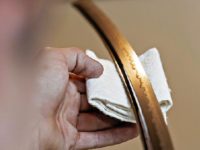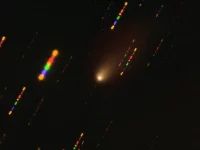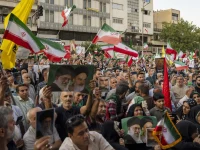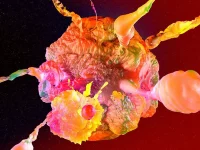War. A journalist went to document the war in Syria, was captured twice – and lived

EXCLUSIVE. Lindsey Snell’s trip amid the Aleppo airstrikes started like all her others, but she soon found herself escaping the Nusra Front only to be caught again at the Turkish border. She recounts her tortuous journey to get back home.
Lindsey Snell knew she was being hunted. A Syrian contact had told her that militants had already arrested her fixer Abdullah, but they were coming for her next. This was Jabhat al-Nusra territory. No armed group, certainly not the smaller and more moderate one she was with, would be able to stand up to what was then al-Qaida’s affiliate in Syria.
The rebel faction she was with tried to protect her, moving her from one house to another in the small village in the countryside of Aleppo where she was staying. As the minutes ticked by, she furiously sent text messages to her emergency contacts and tried to hide some of her footage, shoving hard drives and a secondary camera underneath a wardrobe. She kept her main camera and laptop in plain sight though – hiding everything would be too suspicious.
When they did arrive, 10 men, most in military gear and a few in robes, demanded that she come with them, and that she turn over her phone. She asked to use the bathroom first and panicked for a moment in front of the sink. She deleted as many photos as she could, particularly a few of Idlib, a city near Aleppo that is Nusra’s stronghold. She was afraid that if they saw those images, they would think she was a spy.
“I thought I was screwed, that they were probably going to hold me for a year or two until someone paid my ransom,” she told the Guardian.
Snell, a 32-year-old year old journalist originally from Daytona, Florida, would be detained by these Nusra militants for about two weeks in July, before she escaped and made it to the border with Turkey. There, anticipating freedom, she instead again became a captive, but this time, of the government. Turkish authorities arrested her on 6 August for illegally “entering a military zone”. Turkish authorities held her for about two months, before freeing her and deporting her back to the US on 12 October.
Her story of being doubly detained by both militants and the Turkish government in quick succession is remarkable, as very few journalists detained in Syria have made it out alive to tell their story of captivity. In her first interview since being deported out of Turkey, Snell told the Guardian her story and addressed the accusations of recklessness thrown at her from fellow journalists.
“They’ve been calling me reckless since I started … I faced derision from some other journalists for going. At this point, almost all foreign journalists had stopped going,” she said.
Snell said she left for Syria in mid-July to film the toll of Russian and Syrian airstrikes on civilians, which have relentlessly pounded hospitals, schools and markets. It was her seventh trip to the country as a freelance journalist since 2014, three years after the start of the war. She has filmed more than 30 video dispatches from Syria, some of which have aired on Vocativ, MSNBC, Fusion and the Discovery Seeker Channel. One of her pieces, on Aleppo schools hit by airstrikes, won an Edward R Murrow award this year.
Snell was embedded with Thuwar al-Sham, an Islamist faction that operates in the Aleppo area. Thuwar is active in areas where Nusra had the ultimate authority, and Snell said her fixer arranged for her to get the necessary permission to film.
Nusra has since rebranded itself as Jabhat Fateh al-Sham (the Front for the Conquest of the Levant) and claims it has ended its links with al-Qaida, though experts say the group is effectively still the same.
“My focus in this trip was on doctors, hospitals and rescuers,” Snell said. “These are hospitals where the patients are more than 95% civilian. These aren’t hospitals for militants.”
She filmed for about three days before she was kidnapped. In that time, she said she saw children whose limbs had been blown off by Russian cluster bombs, and talked to doctors who were frustrated by the lack of support and supplies they were receiving from the international community, in part, they believed, because of the presence of Nusra in their area.
Snell said she was staying in Kafr Halab, a village in the western countryside of Aleppo, when Nusra seized her. According to Charles Lister, a senior fellow at the Middle East Institute, the group Snell was with wouldn’t have been in a position to resist Nusra, and even having permission from someone within Nusra itself wouldn’t have guaranteed her protection.
“The militant landscape is just so complex, so factional, that even when you’ve got an organization like al-Nusra, there are multiple different subtractions within that can essentially act like a law and order within themselves,” he said .
A JFS spokesman said they couldn’t provide any information as the incident occurred under the “now defunct Jabhat al-Nusra administration”.
Snell said that after the militants seized her, they interrogated her and then kept her in a house for a week before taking her to a “cave-like” prison when she was kept in a cell by herself for two days. Most of her captors, she notes, were foreigners, including an Iraqi, a Tunisian and a German. They asked her questions about her work and her religion (Snell converted to Islam a year and a half ago when she married her husband in 2015). However, as the fighting to break the siege of Aleppo began to intensify, they moved to a home with women and children – the wives, sisters and children of Nusra fighters.
Snell said there were five women in the house at any given time, and that the ones that weren’t pregnant were breastfeeding newborns. They were all Syrians, and Snell describes them as “kind but guarded”. One of them asked her for her family contacts. Over a few days, she was able to gain their trust, and they let her use their cellphones.
“I used one of their phones sporadically when they’d let me. They had app blockers on everything but the internet, so I made a Gmail and emailed my husband a couple times,” she said.
Snell’s husband, Suliman Wardak, told the Guardian that the FBI was in close contact with him during this period, and that the US government was planning a rescue attempt, but both he and Snell said one was never attempted. The US government declined to comment.
Her emergency contact for the trip, freelance photographer Joey Lawrence, who has himself done work to Syria, was also involved. He had consulted with Snell before making his own trip to Syria in March 2015.
He had been in touch with Snell in the days leading up to her capture. Once she messaged him saying she had been kidnapped, he contacted the Committee to Protect Journalists and the Hostage Recovery Fusion Cell, a government entity that includes the DoJ, the state department and the Treasury.
The Hostage Cell and the CPJ were actively working to secure her release during the two weeks Snell was held captive in Syria, Lawrence said. “I believe they did everything in their power to help her,” he said.
The Hostage Cell wouldn’t comment on Snell’s case, but said the agency dedicates “significant interagency attention and resources to safely bring [Americans held hostage abroad] home”.
Ultimately, Snell said she was able to use her own contacts to arrange a rescue by a man affiliated with another allied Islamist group, Ahrar al-Sham. He agreed to wait for her with a motorcycle by a nearby road on a given night. She just had to get there first.
Snell said she had adopted a cat during her first days of filming, and the militants let her keep it while she was detained. Before she left the house, she said she let the cat out first, so that if she was stopped, she could just say she was looking for it. The house was not well guarded, Snell said, as many of the fighters had been called to the frontline.
Snell said she managed to leave the house, walk 10 minutes across a field of olive trees, and to the man waiting on the motorcycle.
“I was terrified. If they caught me I’d be placed in really bad conditions for the duration of my captivity,” she said.
From there, Snell said the man who rescued her took her to a house near the border with Turkey, where she hid for two days before a smuggler took her to the border area. Once she was on the Turkish side, Snell said she briefly got into a car with a woman from the US consulate and men in jeans she thought might have been US special forces, but that the Turkish guards made her get out and ride with them. Turkish authorities interrogated her, arrested her and brought before a judge.
Snell had left Turkey just before the failed 15 July coup against Erdogan’s government and returned in the middle of an ongoing crackdown during which authorities have thrown hundreds of Turkish journalists in jail. The US government’s efforts to get a US citizen safely out of Syria ended up being used against her. Turkish media portrayed her as a US spy, at time when the same media was alleging that the CIA had been behind the coup.
Snell said the conditions in the Turkish prisons where she stayed were worse than what she had encountered in Syria. During her first 17 days of her 67-day detention, she was kept in solitary confinement at Iskenderun prison. She took up smoking Winston cigarettes to pass the time. Fluorescent lights beamed down on her 24 hours a day. She sweated puddles. Her body was covered in a heat rash.
Snell said she wasn’t told why she was freed and ultimately deported. Kemal Kirisci, a senior fellow at the Brookings Institute, said he suspects that Snell’s release could have been due to negotiations between the US and Turkish governments, or been part of a recent push to release some suspects caught up in the post-coup sweep.
Despite this, Snell’s ordeal is not yet over. Her husband, an Afghan national, flew to Istanbul soon after she was arrested in Turkey to help work with her lawyers and secure her release, and was himself detained by Turkish authorities on 22 August. He has alleged that Turkish authorities accused him of being involved in the coup, and are preventing him from leaving the country.
For now, Snell is considering her options and said she is taking the time to recover at home in New York City. But ultimately, she’s frustrated that her kidnapping and detention in Turkey have drawn more attention than any of the work she did in Syria.
“The story of my kidnapping and arrest got exponentially more attention than my many stories about Assad and Russia’s relentless airstrikes on Aleppo’s civilians,” she said. “What makes Syria different from any other story? It’s the most volatile situation for civilians on earth, and it’s not supposed to be covered?”
Jared Goyette










